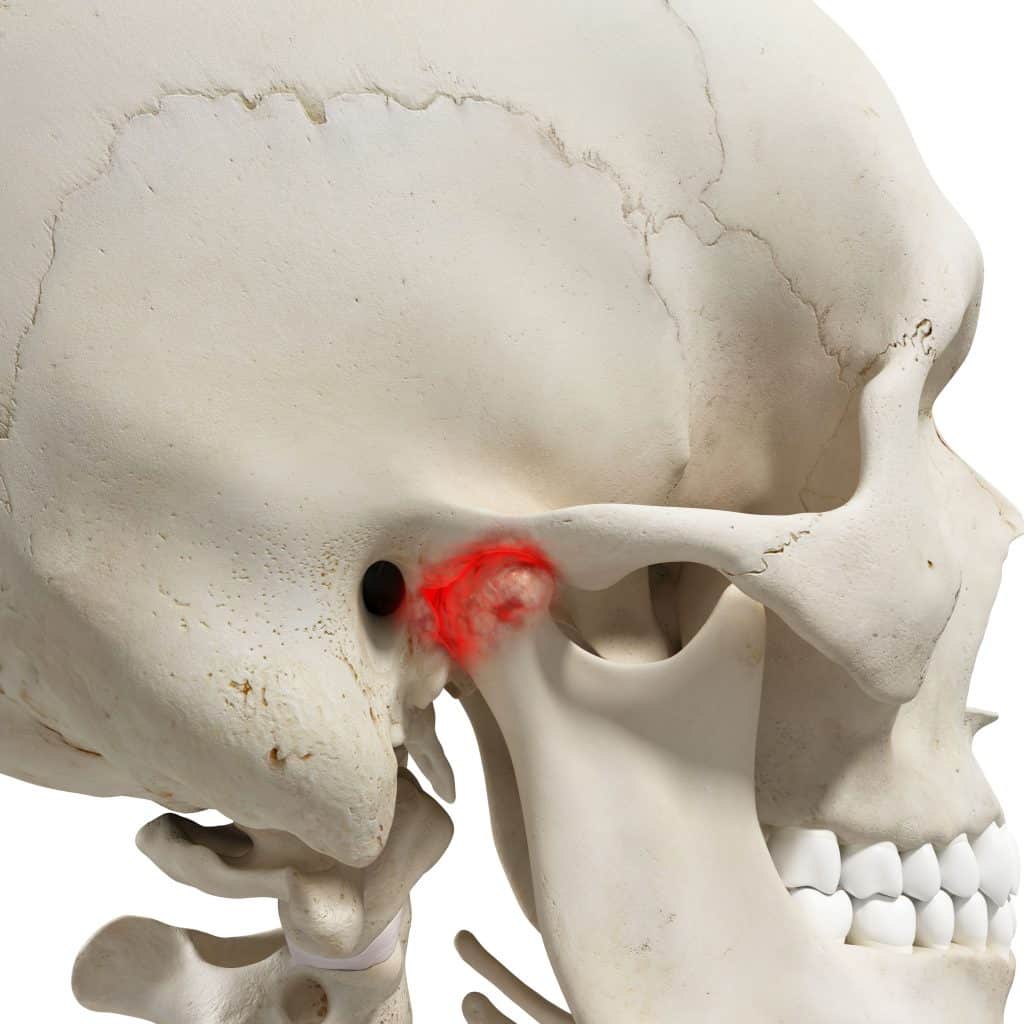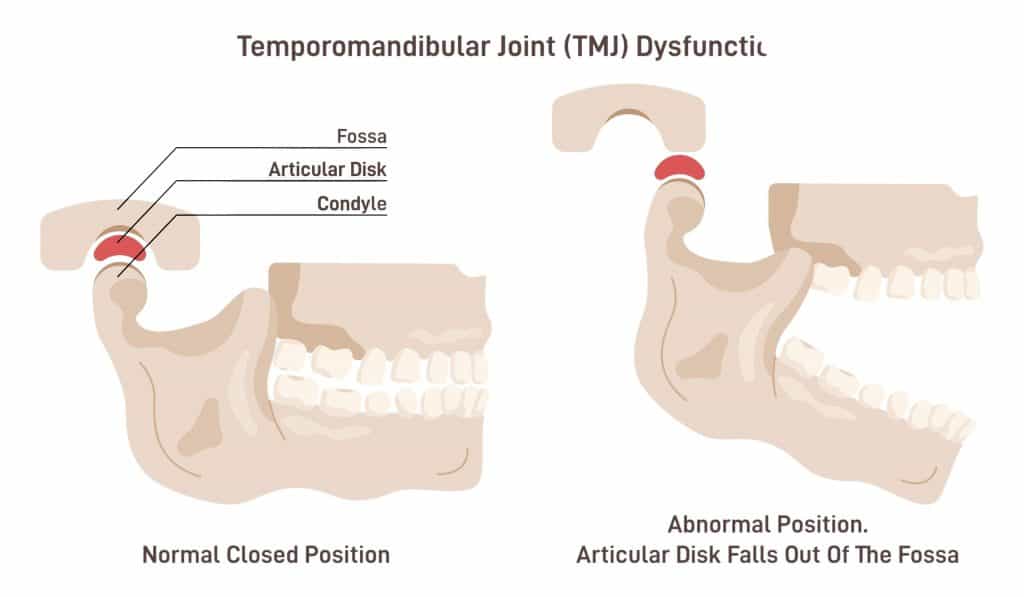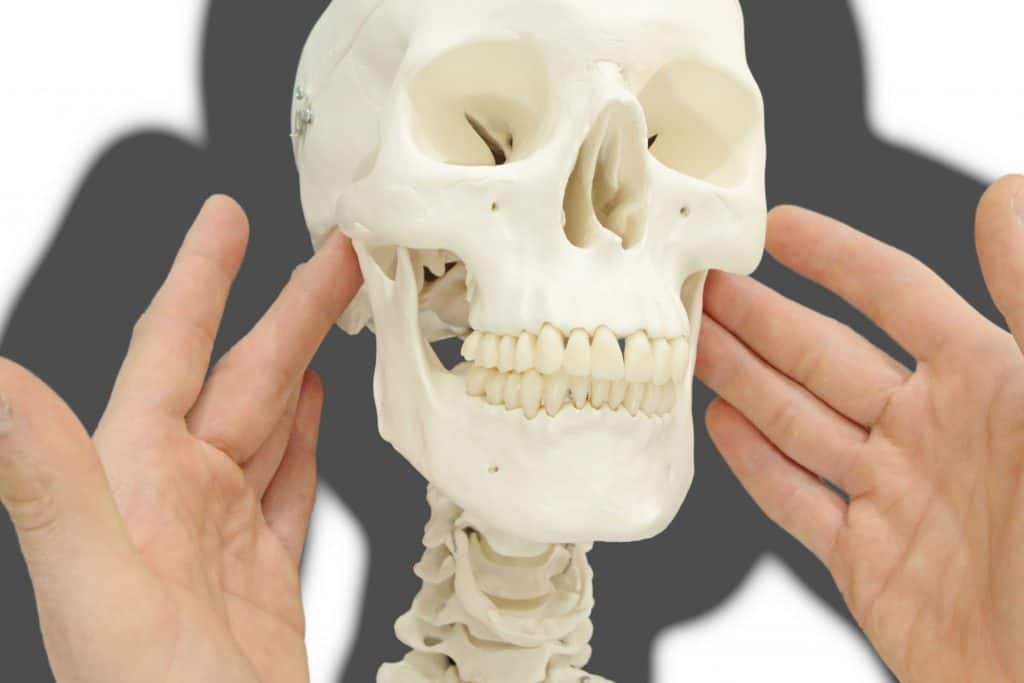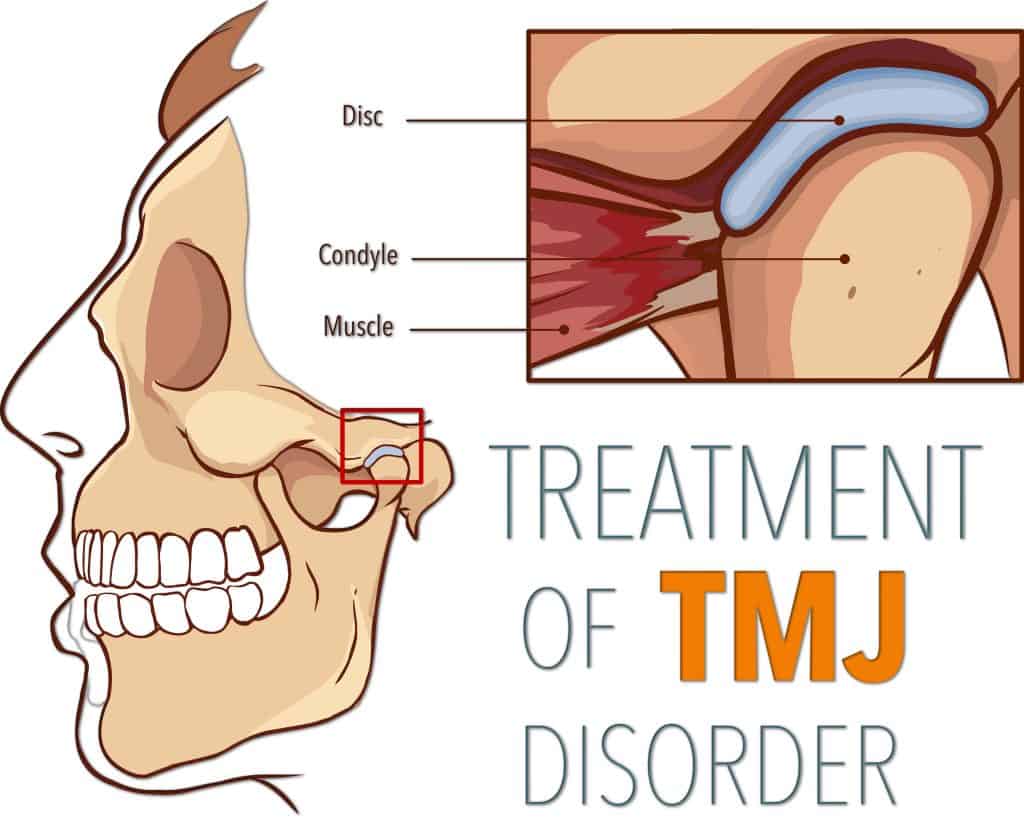
Temporomandibular Joint Disorder. That sounds like a mouthful, right? It’s more than just ‘jaw pain’…
Also referred to as TMD (and also TMJ), this condition limits the natural functions of your jaw, and is far more common in Australian adults than you might think.
It is important to take notice of the symptoms because TMD can affect anyone. Age and gender don’t make you immune.
Temporomandibular Joint Disorder currently affects 10% of Australia’s adult population, causing issues with opening the mouth, the ease of chewing, and subsequent digestion. It also impacts the range of speech.
Despite the impact on a sufferer’s quality of life, the majority of people don’t seek help. The general population boasts an astounding ability to stick their heads in the sand. But that certainly doesn’t ease TMD.
That’s where Focus Osteopathy can help in both our Mount Waverley Osteopathy clinic and Murrumbeena Osteopathy clinic.
TMD – Need To Know

Temporomandibular Joint Disorder tends to be more commonly found in women, and is most often diagnosed in individuals aged between 20 and 40.
TMJ causes a range of problems for the sufferer, from improper and uncomfortable posture, to chronic jaw clenching, and poor alignment of the teeth. Not to mention fractures, lock law, muscle spasms, and a reduced ability to eat, communicate, and drink.
So where does Focus Osteopathy fit into the solution for this?
Our therapists help those with TMD/TMJ to ease their jaw pain, regain normal jaw movement, and lessen daily stress on the jaw.
Our healthcare team can help improve a person’s quality of life through a bespoke package of hands-on care (yes – your TMJ and all of the associated muscles and tendons can actually be treated!), prescribed movement, and patient education.
What Is Temporomandibular Joint Disorder?

TMD/TMJ is a common condition that prevents the full natural function of the jaw. It can cause serious pain, and create a domino effect on other parts of the body.
The Temporomandibular Joint (or TMJ) acts as the hinge that connects your jaw to your skull and is located in front of the ear; it guides jaw movement and permits the opening and closing of the mouth (also the movement side-to-side), along with the ability to yawn and chew.
What Causes TMD/TMJ?

TMD can be caused by a range of bad habits and other health conditions. These causes include bad posture habits and stress/tension, which are arguably the most common instigators.
Medical experts have proposed that the increasing number of TMD/TMJ causes comes from a larger proportion of the population spending a great deal of time sitting.
This sitting incorporates those stuck working at a desk, where we hold our heads too far forward, and sitting in a vehicle for long periods of time. For those who are desk-bound, and commute for a considerable period, TMD/TMJ can become a real risk.
Other bad posture habits come from situations where a parent carries their child upon the same hip, or a mattress doesn’t provide enough support – any instance where you place your head in an awkward position can lead to jaw problems.
This forward position puts strain on the muscles, ligaments, and disk of the TMJ. When the jaw is forced to rest in an open position, and the chewing muscles therefore become overused, you’ve got a problem on your hands.
Then there’s what’s known as “Bruxism”, where people clench their jaws and/or grind their teeth overnight while they sleep; usually caused by a combination of psychological, physical and genetic factors.
Of course, some clench their teeth throughout the day, too, and when this chronic jaw clenching continues, it puts strain on the TMJ and the associated surrounding muscles. This form of ‘awake’ bruxism is known to be a coping strategy for a variety of induced lifestyles stressors and often becomes habitual.
Another cause of TMD/TMJ comes from problems with misaligned teeth (malocclusion). Should teeth be positioned in an unusual way that goes against the grain, larger amounts of stress are placed on the joint when undertaking daily jaw-based motions.
Fractures also play a part, even if that sounds less likely. During any form of traumatic accident that involves the head or face, a fracture to the lower jaw can cause TMD/TMJ. Even though the fracture may heal, it is very common for the TMJ stiffness and pain to remain. Persons will potentially experience a loss of mobility in the jaw following certain kinds of surgery, too.
It’s important to keep Lockjaw (Trismus) in mind, too, as this condition can be both a symptom and cause of TMD/TMJ. Lockjaw is when the jaw muscles spasm and the jaw cannot be fully opened. Arthritis in the TMJ is also a common cause.
Finally, displacement of the disc or soft-tissue cushion – that sits between the ball and socket of the jaw – can cause a clicking of the joint, and this frequently causes pain.
What Does TMJ Feel Like?

The symptoms of TMJ/TMD can’t be generalized for everyone. For some, symptoms last only a little while, while for others they can last for years.
In essence, TMJ will feel like jaw pain. But don’t rest on just that information, as jaw pain can also be a serious indication of a heart attack.
If you simultaneously feel chest pain, a shortness of breath, dizziness, pain in your left arm, nausea, or numbness in your left arm (or any combination of the above), then we’d recommend that you seek medical attention. And fast!
Temporomandibular Joint Disorder causes the jaw to get stuck, or to lock, and sufferers may experience tension headaches, feel discomfort when chewing more stubborn foods, and feel pain and difficulty fully opening their mouth.
Take a look at this checklist that covers TMJ/TMD symptoms. Does this sound like you?
● Jaw fatigue/pain
● Difficulty opening your mouth to eat or talk
● Ringing in your ears
● Dizziness
● Headache
● Popping sounds in your jaw
● Neck pain
● Locking jaw
Can Clenching or Grinding Cause TMJ?

When undertaking all this research into TMJ, you will also find information about condition known as ‘Bruxism’ (as mentioned earlier in the article). This basically refers to the grinding of your teeth, and the clenching of your jaw, and is a common symptom of Temporomandibular Joint Disorder.
TMJ and Bruxism can occur together, or independently. Clenching your jaw and grinding your teeth can become habitual and is often a derivative of stress.
Simply driving to work or dealing with life’s daily stresses (sitting improperly at a desk, for example) can incur enough of an impact for your jaw muscles to tense and teeth to grind. You eventually start to do this unconsciously – either during the day (awake Bruxism) or while asleep (sleep Bruxism).
Some individuals suffer from both, and have to endure the consequent headaches, facial tension, and discomfort that radiates through their ears, teeth, and jaw; which limits the jaw’s movement.
Symptoms of Bruxism and TMJ are strikingly similar, and the two conditions often go hand-in-hand.
How Is TMJ Diagnosed?

To identify the root cause of your Temporomandibular Joint Disorder, our Mount Waverly or Murrembeena clinic will thoroughly review your medical history. This helps to establish any surgeries, fractures, or previous injuries that could have impacted your head, neck, or jaw.
Before that takes place, your assigned medical professional will ask you to describe your pain and guide you through identifying all your associated symptoms. If you are feeling any form of headache, now is the time to say!
They will then observe pain patterns in the neck and jaw joint and conduct a physical examination of your neck and jaw area – including the soft tissue and muscles.
Following this, the physical therapist will evaluate your posture and back strength. This allows an observation of your cervical spine (the upper portion of your spinal cord located in your neck) and its movement.
An inspection of your TMJ will also take place, to discover how it moves and identify any abnormalities in the motion of your jaw when it moves. Should there be issues with your teeth, you may be referred to a dentist for a deeper analysis.
How Can Focus Osteopathy Help Me?
By seeking help, you will place yourself on a path to recovery. It’s absolutely the right thing to do. By working together with your therapist, the natural movement of your jaw will be restored and your discomfort will be eased.
Depending on the severity of your condition, we will then establish a treatment plan which will include education about posture, exercise, and improving jaw movement.
For improving your jaw’s movement, our therapist will employ skilled hands-on techniques and manual therapy to gently manipulate the movements of your TMJ and relieve pain in the joint and surrounding tissue.
This may stretch the jaw to restore the natural joint function and address any issues with muscle flexibility, alongside the identification of and break-up of scar tissues (adhesions) that often develop when an area of the body undergoes constant injury.
You will probably be taught about special exercises that don’t exert pressure on your TMJ, yet strengthen the muscles of the jaw – getting you back to health!
Can TMJ Be Prevented or Treated?

In a word? Yes!
Maintaining a good posture is the key to preventing TMJ/TMD issues. Medical professionals and subject experts agree that the following tips can help prevent the problem from occurring:
● If you are working on written documents or computer screens, place the work directly in front of you, and not off to one side where you are staring in one direction for long stretches of time.
● Avoid chewing gum, as the repetitive chewing motion can cause damage to the TMJ.
● Avoid opening your jaw beyond what feels natural.
● Keep your computer monitor at eye level, so that you are not stretching your neck to look down, up, or to the side.
● Using the phone at work? Use a headset so that your neck and jaw remain in a neutral, yet comfortable, position.
● Avoid smoking.
● Try to avoid hard or chewy foods.
● Brush your teeth and maintain oral hygiene.
● Try to avoid sleeping on your stomach, as this forces the neck to maintain a certain posture to maintain an open airway – increasing stress on the TMJ.
Looking for help? Struggling to get answers? Need to talk to someone?
Call either one of our clinics, or reach out to us through our contact page, and we’ll help you out.
And, remember – this is a very common condition.
Suffering from Temporomandibular Joint Disorder doesn’t make you unusual.
Far from it!
Don’t suffer in silence.
We’re here to help. Reach out anytime.

